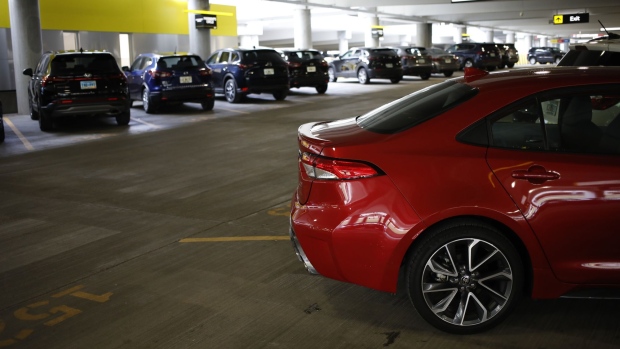Feb 10, 2022
Hertz Accuses Thousands of Car Renters of Theft, Court Papers Show
, Bloomberg News

(Bloomberg) -- Hertz Corp., facing lawsuits from hundreds of car renters who say they were falsely arrested for auto theft, files thousands of related criminal complaints each year against customers, according to claims in newly released court documents.
In one four-year period, the company filed nearly 8,000 theft reports annually, advocates for the falsely arrested customers said in a federal court filing in Wilmington, Delaware today. The advocates cited internal data from Hertz that a judge had ordered the company to release.
A breakdown of the theft reports is not public, so it’s not possible to know yet exactly how many of the complaints were against customers and how many were for some other variety of theft. Hertz informs police that a customer may have stolen a car under certain circumstances. Many of those people turn out to have valid contracts and allegedly have been falsely arrested, according to the lawsuits.
Court Order
In a court hearing Wednesday, U.S. Bankruptcy Judge Mary Walrath ordered the annual theft numbers to be made public, siding with advocates for 220 people suing Hertz who argued that more details about Hertz’s internal anti-theft program should be public.
Messages left for Hertz representatives weren’t immediately returned.
Court documents show that some of the customers who rented cars were jailed, some years after they rented and returned the cars. At least one allegedly was held at gunpoint just hours after paying for a rental.
The false arrest claims often involve long-term rentals, some set up directly by the customer, others through an auto insurance company, according to court documents.
Those who claim Hertz had them wrongly arrested have filed claims in bankruptcy court demanding to be paid like other creditors of the company. Walrath oversaw Hertz’s Chapter 11 reorganization, which ended last year with a plan to pay creditors in full.
CBS previously reported that Hertz said the “vast majority” of cases involve renters who were weeks or months overdue on returns and authorities are brought in only after “exhaustive attempts” to reach a customer.
The case is Hertz Corp. 20-11218, U.S. Bankruptcy Court, District of Delaware (Wilmington).
©2022 Bloomberg L.P.